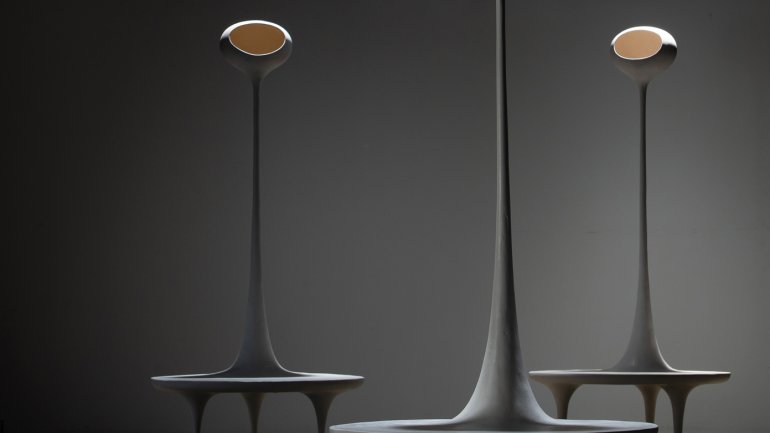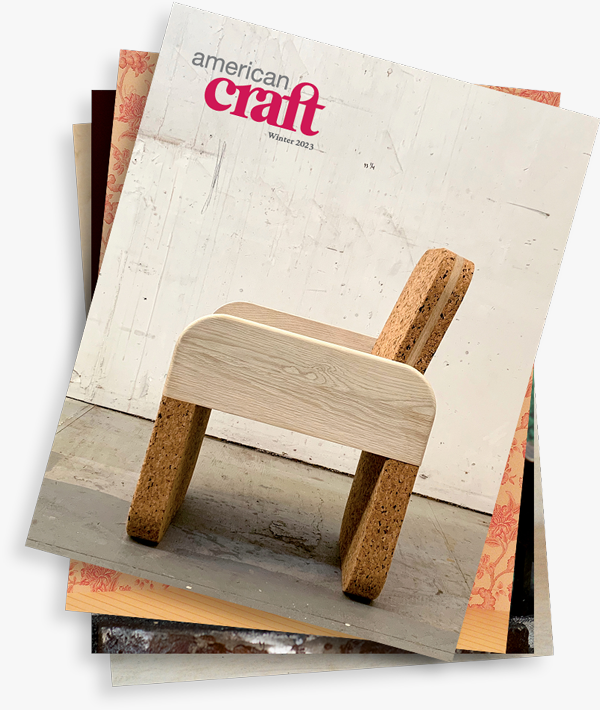The Table That Dreamed
The Table That Dreamed
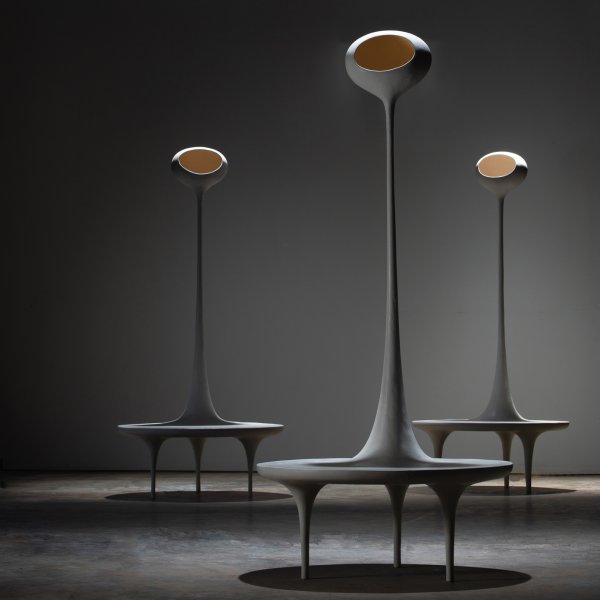
The Table That Dreamed...(of being light), 2021, is a combination table and lamp, gypsum plaster and LED, 80 x 40 x 40 in. Photo by Herminio Rodriguez / @hermrodz.
The day I spoke with Reynold Rodriguez, Hurricane Fiona had just descended on Puerto Rico, leaving in its wake dangerous floods and extensive blackouts. “Emotionally, it’s a lot, to have to go back to something very similar to Maria,” says Rodriguez, a furniture designer based in San Juan, recalling the catastrophic storm of 2017. Yet in his creative work, Rodriguez has found adversity to be formative, even invigorating. It was Hurricane Maria that emboldened him to begin designing highly expressive pieces of furniture—the kind he’d dreamed of making for a long time—and to allow his practice as a millwork contractor to recede into the background. “I have a passion for wood, but my true passion is to communicate ideas through design,” he says. “After Maria, I had this restlessness, this desire to show what I could do. One day I woke up and said The time is now.”
Salvaging many of the trees felled by the category 5 hurricane—massive hunks of mahogany, almendro, and guanacaste wood—Rodriguez carved a series of chairs with unexpected curves and shapes. Among these are Gravity and Grace, a mismatched pair that look almost like boulders, the unevenness of their bulky exteriors balanced by perfectly smooth seats. Both are made from mahogany charred to a deep black. Rodriguez posted images of the entire process on Instagram, from collecting trees on the street to hand-carving the trunks, and soon found a following.
“There’s an absurd aspect to social media, but Instagram opened up a world outside of Puerto Rico,” he says. “It became a bridge.”
Being based in his hometown, with the ease it affords, has had its downsides. Rodriguez graduated from the Rhode Island School of Design in the early 1990s and headed straight to Barcelona, hoping to find a job there. He was lucky enough to meet Miguel Milá, the esteemed Catalan industrial designer and inventor, who convinced him to return to the Caribbean and build a career that spoke to his roots. It was easier said than done. “I came back knowing that I may never have the opportunities, contacts, or experiences I’d have in a city with a stronger design culture,” he says.
“I became a contractor, and years went by. The reality is that for many reasons, personal reasons and idiosyncrasies, I would not have been ready to take advantage of what’s happening to me now.”
Rodriguez recently showed his work at Salon Art + Design in New York and at Design Miami, where he was represented by Wexler Gallery, and is getting ready for his first solo exhibition this fall, at London’s Charles Burnand Gallery. Some of his early wood chairs will be on view, along with a dozen or so other pieces, including an anthropomorphic, rangy lamp that rises from a low table, called The Table That Dreamed . . . (of being light). It’s made of gypsum plaster, a material he’s been experimenting with lately, applying it by hand over computer-cut wood and wire-mesh frames.

Artist Reynold Rodriguez. Photo by Herminio Rodriguez / @hermrodz.
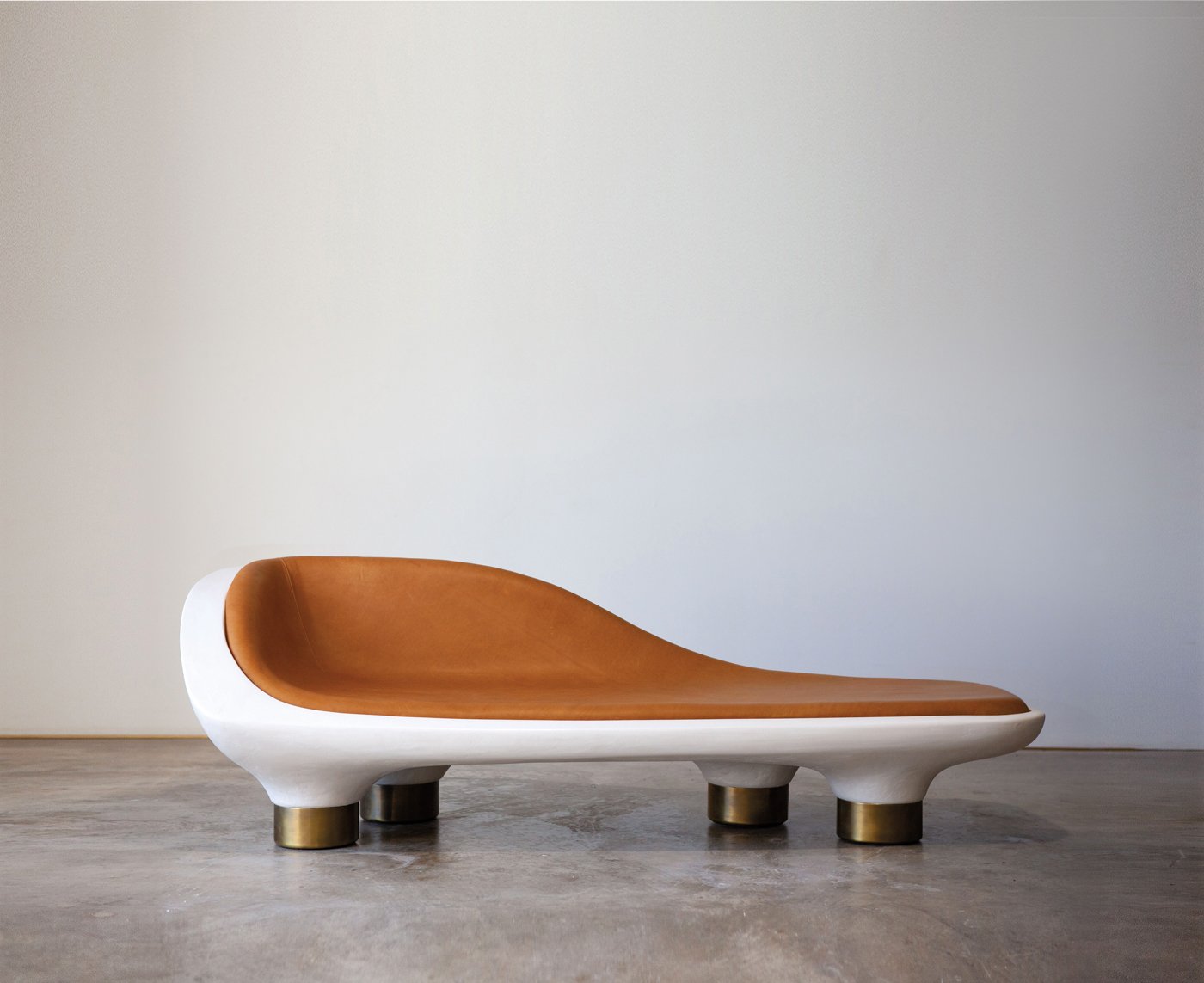
Acuéstate y No Jodas Más chaise lounge, 2021, plaster with leather upholstery, 24 x 84 x 34 in. Photo by Herminio Rodriguez / @hermrodz.
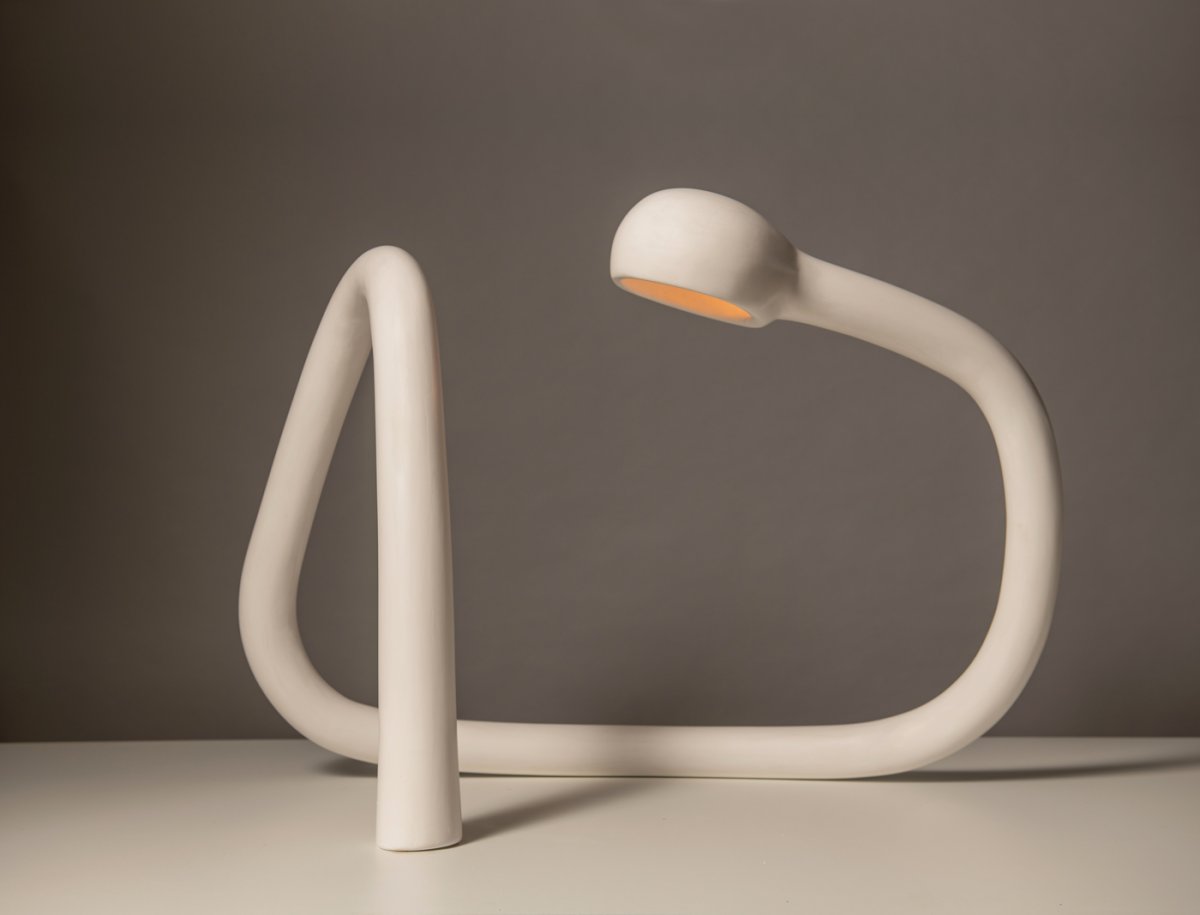
Continue, 2020, is a large table lamp in polished plaster, 29 x 42 x 22 in. Photo by Herminio Rodriguez / @hermrodz.
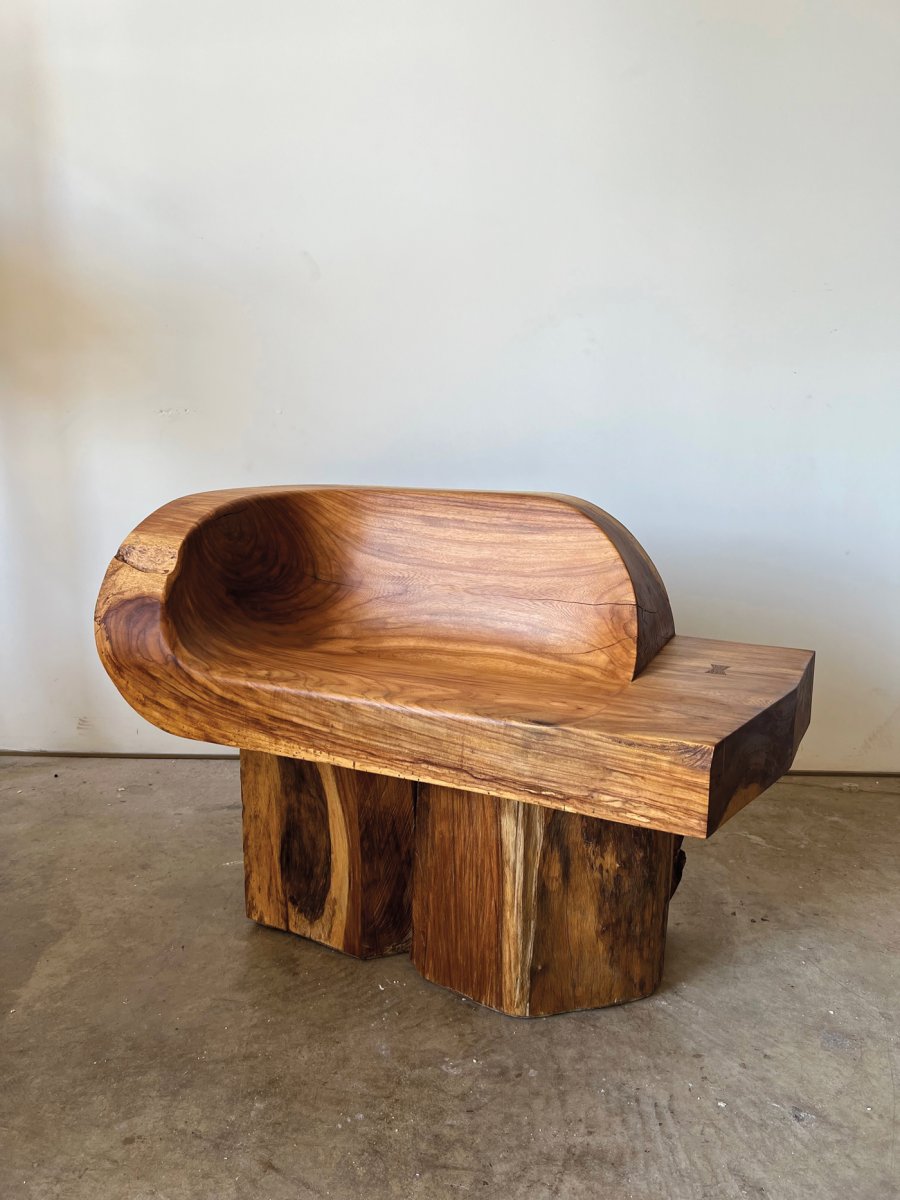
Sometimes a Blunk, 2022, carved poisonwood bench, 28 x 40 x 26 in. Photo by Herminio Rodriguez / @hermrodz.
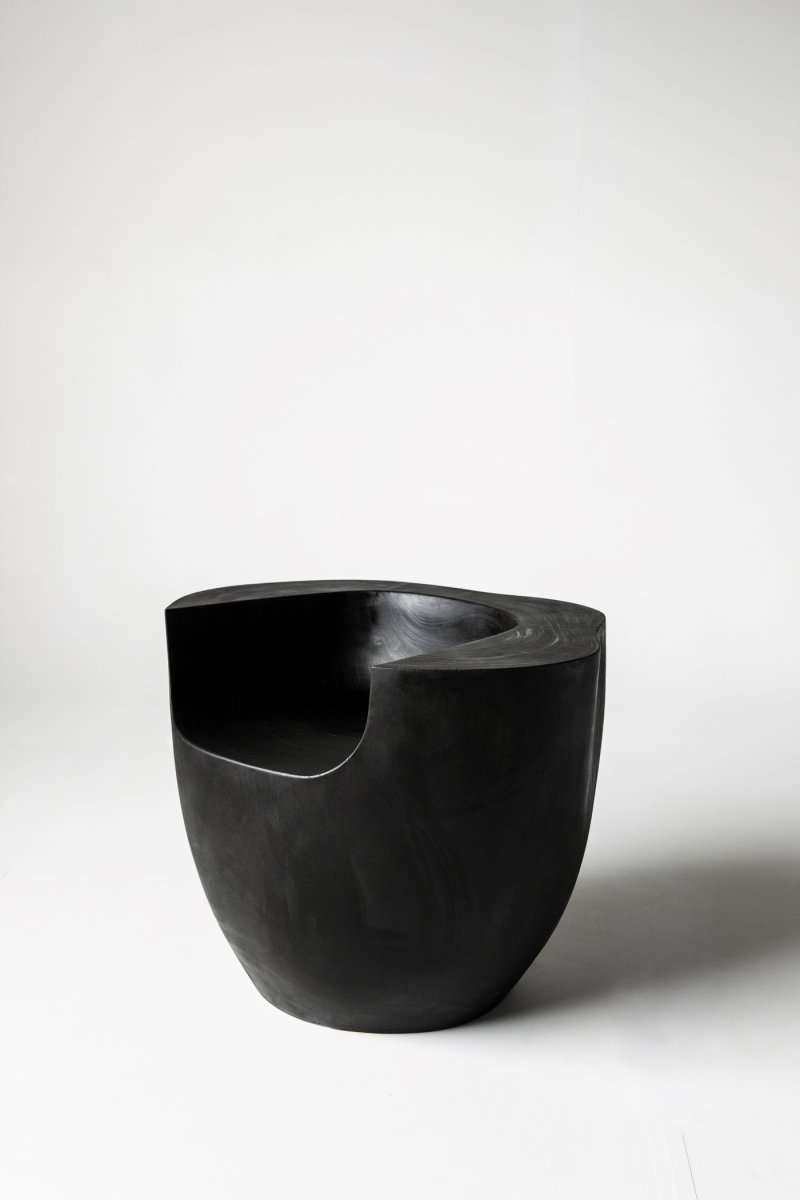
One of a pair of chairs in Gravity and Grace, 2021, salvaged and carved mahogany with a charred finish, 26 x 30 x 34 in. Photo by Herminio Rodriguez / @hermrodz.
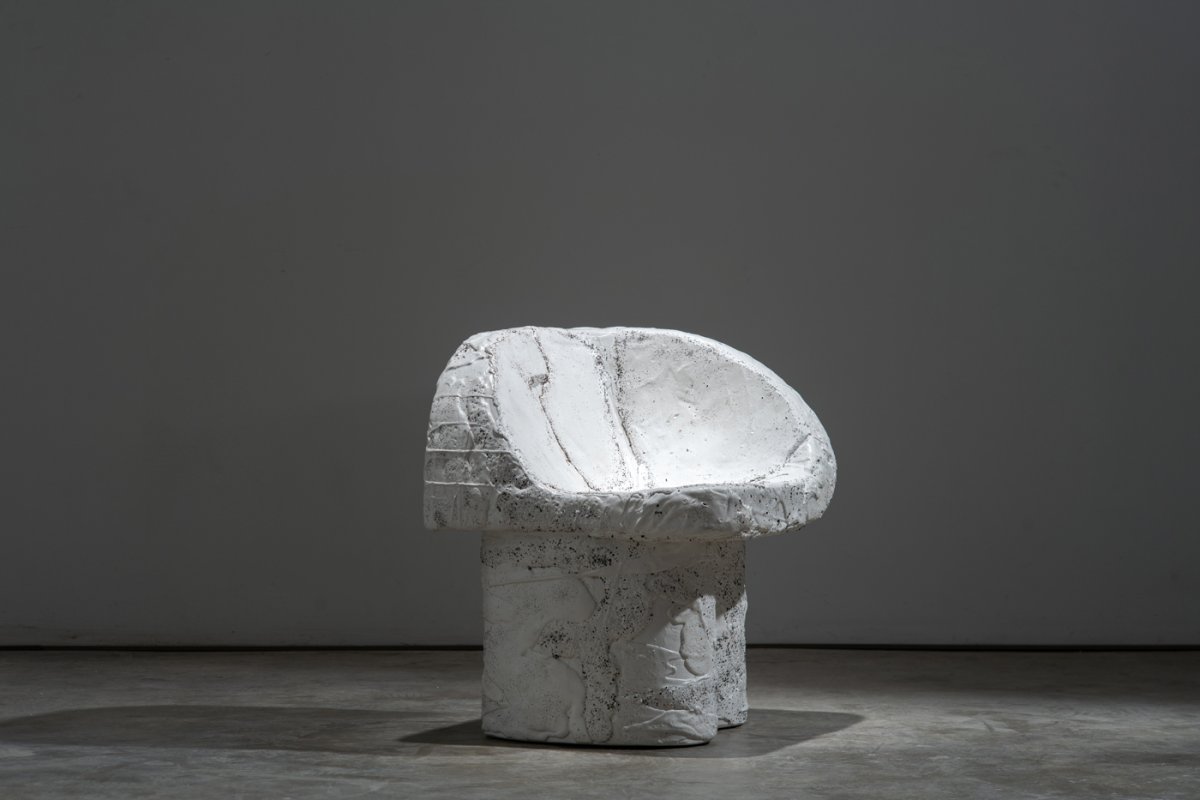
El Beso, 2022, terrazzo plaster chair, 28 x 20 x 20 in. Photo by Herminio Rodriguez / @hermrodz.
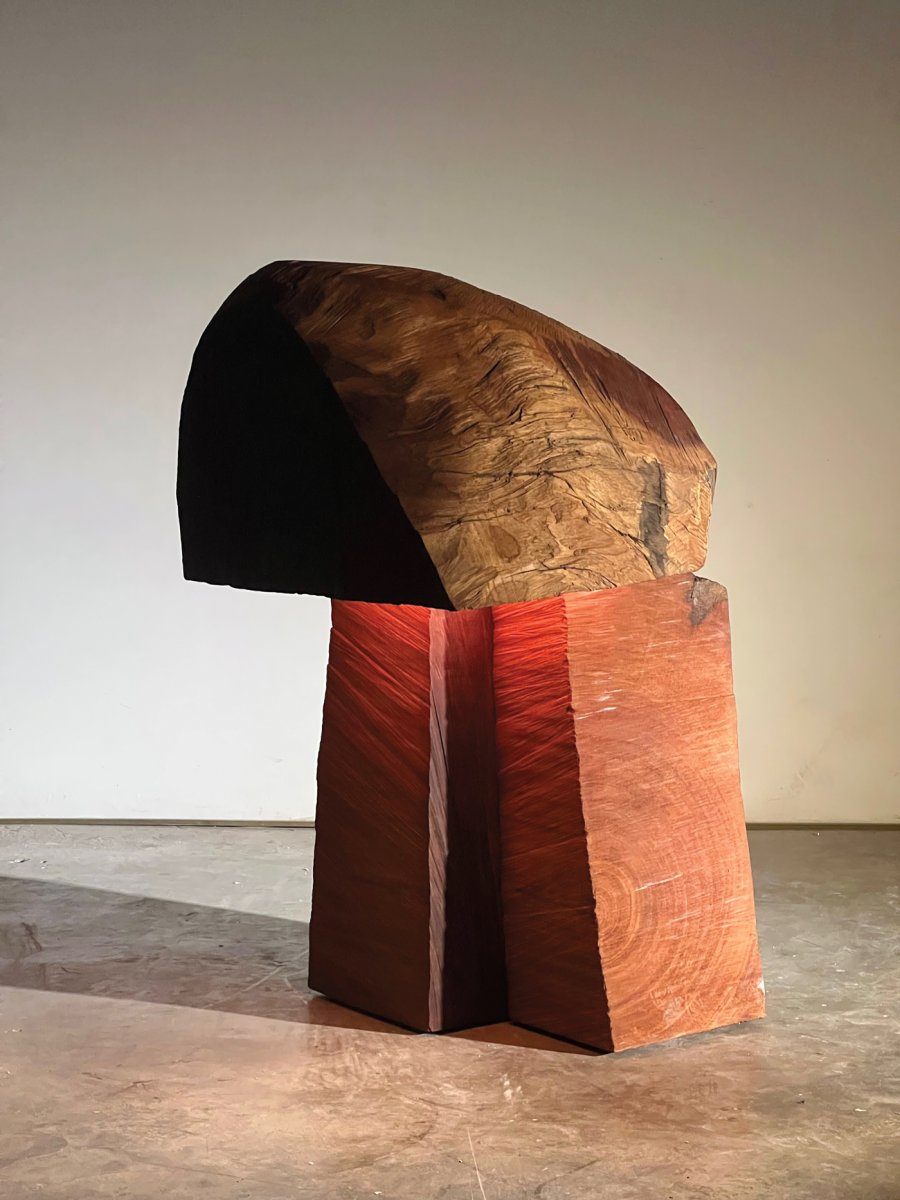
Maxed Lamp ( . . . from the land of big ideas), 2022, carved mahoghany, 39 x 22 x 26 in. Photo by Herminio Rodriguez / @hermrodz.
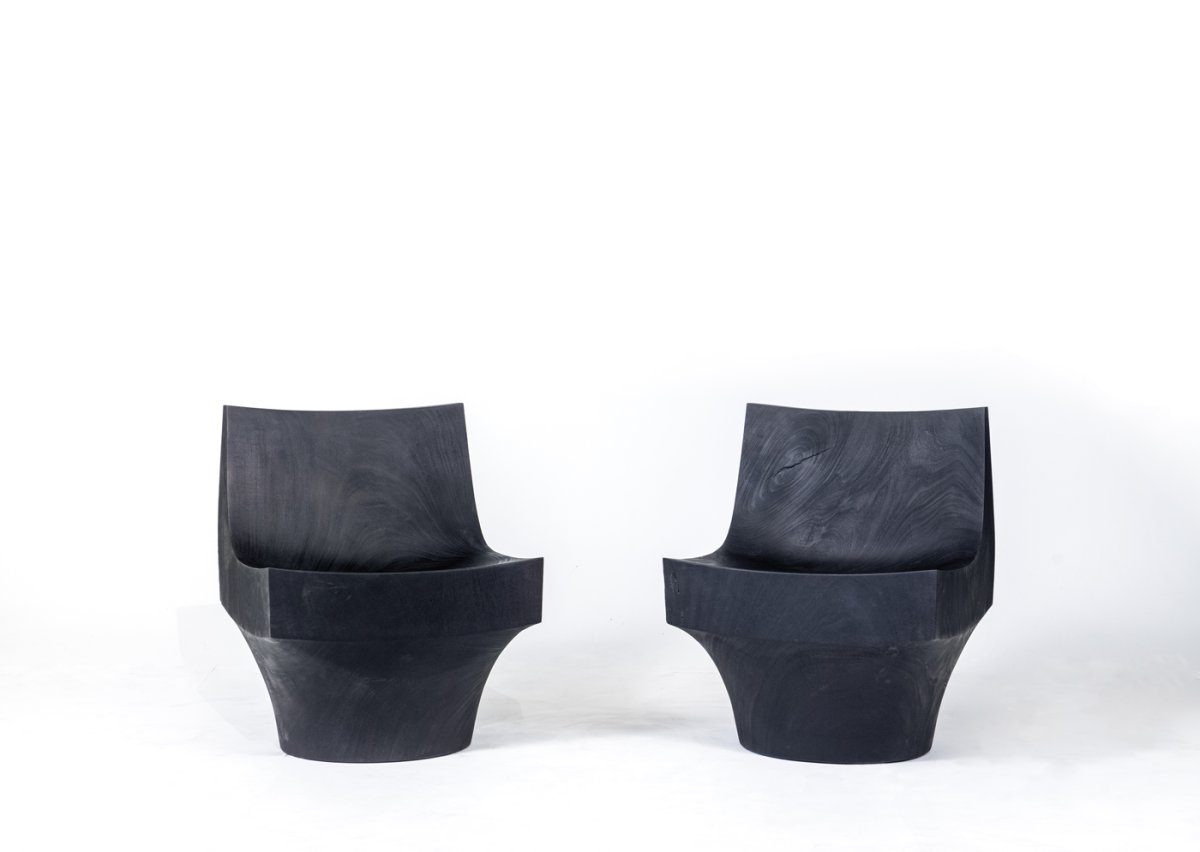
K Chair, 2020, carved and char-finished almendro wood, 28 x 24 x 24 in. Photo by Herminio Rodriguez / @hermrodz.
His favorite recent creation, he says, is a streamlined fainting couch with a plaster body, a taut leather seat, and hammered brass legs. It’s titled Acuéstate y No Jodas Más, which translates roughly to “just lie down and stop bothering me.” After some probing, he revealed that the title had to do with a breakup, with the feeling of wanting something to be over, of wanting someone out of your life. “Change is very painful, but it’s also a source of inspiration,” he says.
“My language is emotional, and I want my pieces to have a narrative presence, to establish a communication.”
Although Rodriguez is content working out of his 10,000-square-foot studio in San Juan, set in a former brewery from the 1930s, he’s aching to incorporate more sophisticated processes and finishes, something he might have to outsource. He would one day love to work with the Ateliers Saint-Jacques near Paris, considered the finest stone and metal workshop in the world. “Without using a language that’s too disruptive or loud, I want people to have an experience that isn’t easy to forget,” he says, “to transform furnishings into something more.”
Discover More Inspiring Artists in Our Magazine
Become a member to get a subscription to American Craft magazine and experience the work of artists who are defining the craft movement today.
